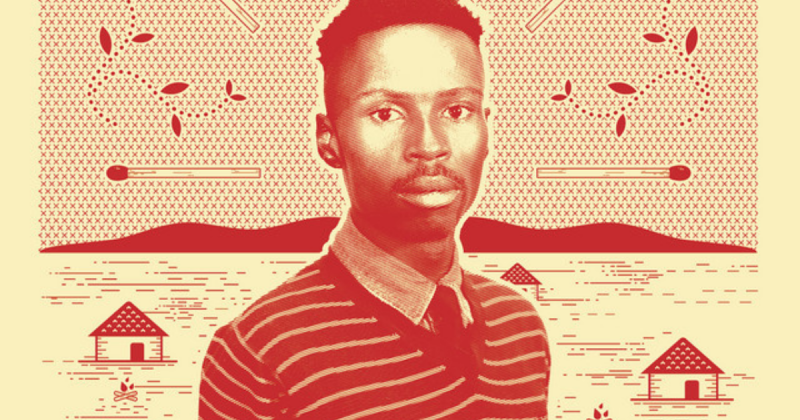10 years ago today, we heard Bongeziwe Mabandla for the first time. “Hamba Nami, Pt.1” – the opening track to his debut album, Umlilo – begins almost as a chant, a march composed of rhythmic harmonics and splintering vocal lines, his brittle, desperate voice at the core.
Pushing a bold yet vulnerable brand of electronic-folk music, Mabandla has constantly reinvented himself, and today stands as one of South Africa’s most progressive alternative artists. A two-time SAMA winner, his success is testament to his talent, but it wouldn’t be without the groundwork laid on Umlilo.
“I often wonder where that courage came from… ” Mabandla tells me, “the courage to make an album with almost no experience as a musician.” He continues, “I think I had some kind of instinct for it. And, importantly, something to say.”
Recorded under the guidance of drummer and producer Paolo Chibanga, who had seen promise in Mabandla and taken him under his wing, the album took almost four years to complete before Sony Music decided to offer Mabandla a record deal.
“I had a lot of self-doubt when we started recording Umlilo,” he says, “which held me back. I was stuck on creating the perfect album, although I realize now that the perfect album doesn’t exist.”
He continues, “Having insecurities can also be a good thing, and I had to accept that they weren’t going away. I attended the big meetings with Sony, talking about things I didn’t understand. I was pushed into a world I knew nothing about, and I learnt along the way.”
When Mabandla left school, moving to Johannesburg from the Eastern Cape, his intentions were in-fact to become an actor. He found a few acting gigs, including a role on Generations and an appearance in a local film production, “but music took over,” says Mabandla.
Umlilo may be filled with the innocence and naivety of a young musician at the very start of their career, but that’s also what gives it life, and its probing, enigmatic spirit – one that Mabandla admits he’ll never get back.
He says, “I love the album because it has such raw emotion, the kind that’s hard to achieve now that I’m a little older. Listening back to it, I can hear how nervous I was, how my voice quivers, how I don’t articulate words properly.”
Tracks like “Wandenzanina” and “Ngawe Mama” form the backbone of the record’s sound, their soul-infused acoustics and rhythmic strings soaking up the tones of African folk song that surround them. And while Mabandla’s stylistic influences are strongly felt – Tracy Chapman, Vusi Mahlasela, Lauryn Hill, Freshlyground – his personality and integrity as an artist had already solidified themselves in these early offerings. You hear a song written by Bongeziwe Mabandla and you know it’s him. It hardly takes an instant.
“Of course, there are things I don’t like about the album, things I would have done differently …” Mabandla tells me. “It’s really hard for me to listen to Umlilo because I can feel my anxiety racing through the songs. I guess I wasn’t aware of how much of myself I was exposing.”
“That bareness is difficult to take in,” he continues, “there’s pain laid into those melodies.”
At its centre, Umlilo is really an album about understanding your identity, and claiming ownership of it. The title means ‘fire’ in English, a concept that is best embodied by the hunger in Mabandla’s voice. It burns with a desire to be heard, a craving to manifest within itself and in every chord around it a feeling of intense empathy.
Just as “Hamba Nami” marched in, the sprawling 9-minute album closer “Ntembisweni” marches out. It’s joyous and loud and fun, still preserving its sensitivity, which now seems inseparable from Mabandla’s creative process. Scattered vocals drift off into the distance, like embers from a flame, a drum quivers and the strings of a guitar sound softy. Yes, there is pain in this, but there is bravery too, and a lot of it.










